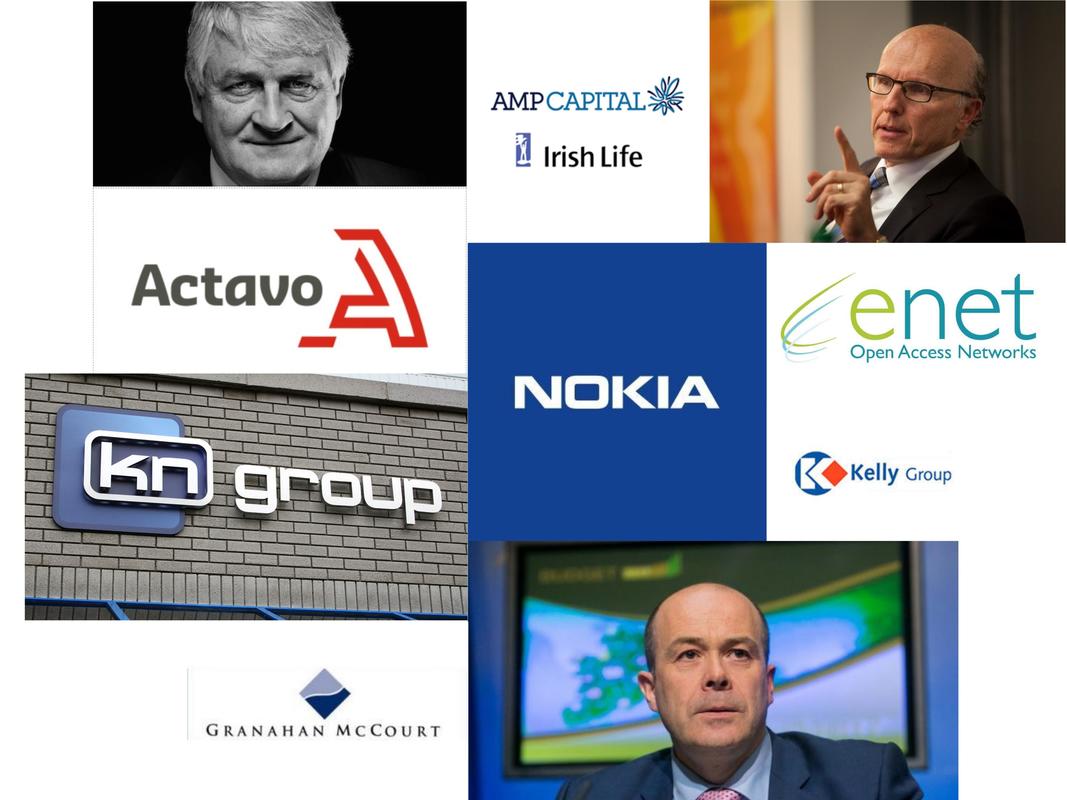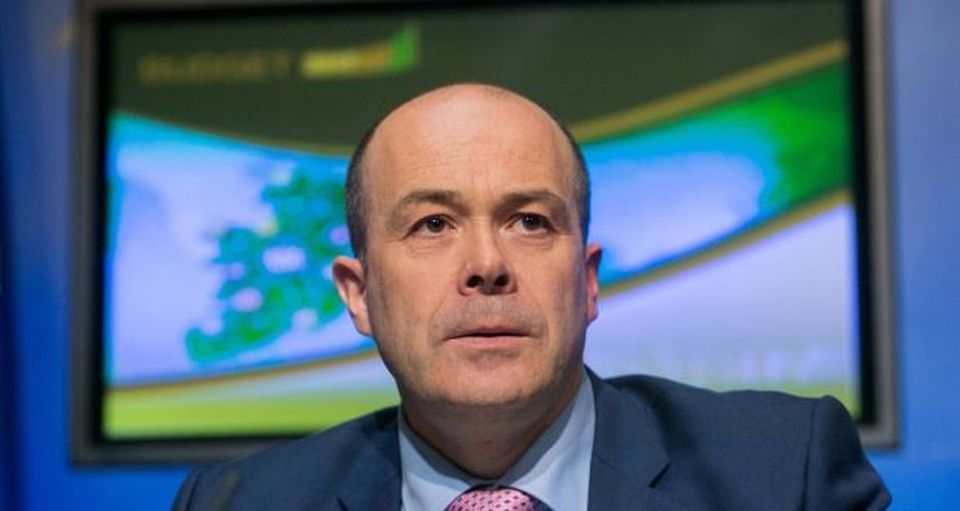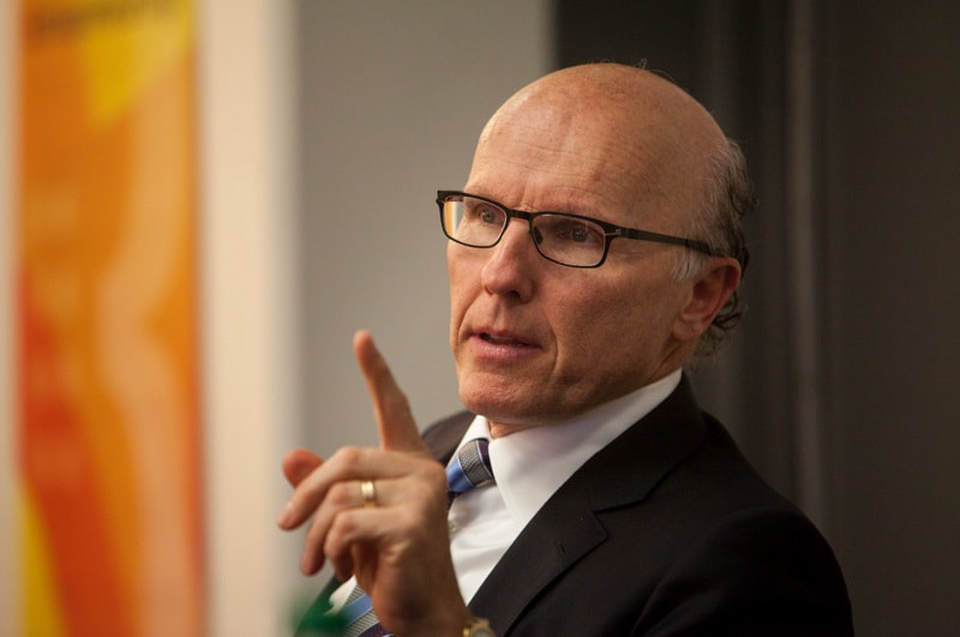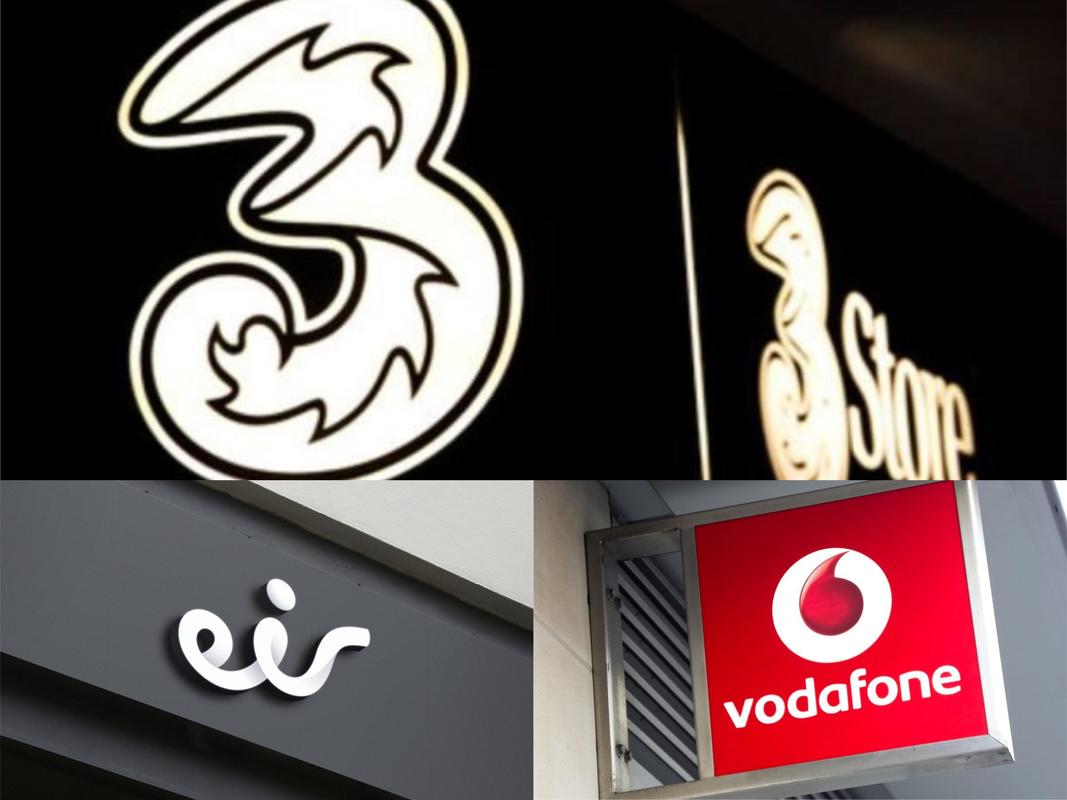The National broadband Plan: Needlessly Corrupted by Politics
The ship will sink if the struggle for optics prevails, leaving over one million Irish people in the digital stone-age.
Updated 13/10/18
In a world where the pervasiveness of politics in society has relentlessly extrapolated, every issue around us has been tackled with one homogenous principal: optics. The moves of a politician are tracked carefully, and one little slip-up has the ability to wreak havoc on your reputation in the eyes of the public. To me, the strive for good optics in politics is a debilitating issue and one that has now penetrated the very core of the National Broadband Plan. Of course, achieving good optics is a major win for any politician or government, but, if the means by which you achieve those optics hamper your capability to fulfil an agenda, you will inevitably find yourself in chaos.
The outgoing Minister for Communications highlighted this issue when he announced his resignation earlier this week, a shock move that has plunged the very foundations of the current Irish government into precarity. "It's more about polls than telecoms poles", "more about optics than fibre optics" explained a passionate and emotional Denis Naughten as he waved goodbye to a job which has repeatedly seen him vouch for a project that has come to the very brink of collapse on numerous occasions. Week by week, it appeared another blow had wounded the National Broadband Plan, and consequently, Denis Naughten. High-profile exits by SIRO and eir, frequent restructuring of the sole remaining bidder (eNet) and most recently, revelations that Naughten and his department maintained a cosy relationship with David McCourt, the head of Granahan McCourt and the main bidder in the National Broadband Plan contract, have rocked a sinking ship that is approaching a day of judgement.
Naughten's resignation is a polarising issue because there will be some that claim his work as Minister of Communications was the finest in generations, whereas others will claim that his recurred mistakes have drawn out the last straw in the National Broadband Plan. But, there is one thing I can say for sure, the 1.1 million people that have waited years for the commencement of this plan aren't worried about the optics of a minister's actions, they are worried about the availability of fibre optics.
In short, the National Broadband Plan is a telecoms project that has been needlessly corrupted by the deep entrenchment of politics.
The outgoing Minister for Communications highlighted this issue when he announced his resignation earlier this week, a shock move that has plunged the very foundations of the current Irish government into precarity. "It's more about polls than telecoms poles", "more about optics than fibre optics" explained a passionate and emotional Denis Naughten as he waved goodbye to a job which has repeatedly seen him vouch for a project that has come to the very brink of collapse on numerous occasions. Week by week, it appeared another blow had wounded the National Broadband Plan, and consequently, Denis Naughten. High-profile exits by SIRO and eir, frequent restructuring of the sole remaining bidder (eNet) and most recently, revelations that Naughten and his department maintained a cosy relationship with David McCourt, the head of Granahan McCourt and the main bidder in the National Broadband Plan contract, have rocked a sinking ship that is approaching a day of judgement.
Naughten's resignation is a polarising issue because there will be some that claim his work as Minister of Communications was the finest in generations, whereas others will claim that his recurred mistakes have drawn out the last straw in the National Broadband Plan. But, there is one thing I can say for sure, the 1.1 million people that have waited years for the commencement of this plan aren't worried about the optics of a minister's actions, they are worried about the availability of fibre optics.
In short, the National Broadband Plan is a telecoms project that has been needlessly corrupted by the deep entrenchment of politics.
The State of the National Broadband Plan
One thing is for sure, Naughten's resignation will only add fuel to a fire that has burned over the past weeks; calls for a reimagination of the National Broadband Plan, calls for us to go back to the drawing board. This is easy to say if you enjoy the "luxury" of high-speed broadband, but an insult to those who have toiled over the process for years on end, and more importantly, another stab in the back for the people desperate to see the realisation of the plan.
Just as a summary amidst the media storm in relation to the National Broadband Plan, there is one remaining bidder for the government contract to connect 542,000 premises in Ireland with a revolutionary utility, high-speed broadband (above 30Mbps). That bidder is National Broadband Ireland (controlled by David McCourt), which is now 100% owned by the Irish Infrastructure Fund (IIF), a semi-state investment fund. In recent weeks, the IIF purchased the remaining stake in eNet from Granahan McCourt, led by David McCourt. A new head has been appointed at eNet, Peter McCarthy, and the Irish Times has reported that he is a long-time associate of billionaire Denis O'Brien. At the beginning of the process, the eNet consortium included SSE, the major UK utility firm, and John Laing Group, a UK developer and operator of infrastructure, however, both of these have since withdrawn their support for eNet. The remaining bidder, National Broadband Ireland, has also submitted its plans to incorporate Actavo, owned by Denis O'Brien, as a key partner in rolling out the National Broadband Plan. eNet has sighted the inclusion of Nokia, Kelly Group and KN Group in the roll-out, the largest and most trusted telecoms contractor on the island of Ireland.
For many people, the direct incorporation of Denis O'Brien in a multi-billion euro government infrastructure project sounds bells of alarm and disgust. However, National Broadband Ireland's decision to utilise Actavo as a roll-out partner needs to be taken seriously because, in reality, there are few alternative options for executing a project of such unparalleled scale. Whether this will become a major point of contention for the public remains to be seen, but for the sake of 1.1 million people, I hope previous wrongdoings by O'Brien don't infiltrate yet another government project.
Just as a summary amidst the media storm in relation to the National Broadband Plan, there is one remaining bidder for the government contract to connect 542,000 premises in Ireland with a revolutionary utility, high-speed broadband (above 30Mbps). That bidder is National Broadband Ireland (controlled by David McCourt), which is now 100% owned by the Irish Infrastructure Fund (IIF), a semi-state investment fund. In recent weeks, the IIF purchased the remaining stake in eNet from Granahan McCourt, led by David McCourt. A new head has been appointed at eNet, Peter McCarthy, and the Irish Times has reported that he is a long-time associate of billionaire Denis O'Brien. At the beginning of the process, the eNet consortium included SSE, the major UK utility firm, and John Laing Group, a UK developer and operator of infrastructure, however, both of these have since withdrawn their support for eNet. The remaining bidder, National Broadband Ireland, has also submitted its plans to incorporate Actavo, owned by Denis O'Brien, as a key partner in rolling out the National Broadband Plan. eNet has sighted the inclusion of Nokia, Kelly Group and KN Group in the roll-out, the largest and most trusted telecoms contractor on the island of Ireland.
For many people, the direct incorporation of Denis O'Brien in a multi-billion euro government infrastructure project sounds bells of alarm and disgust. However, National Broadband Ireland's decision to utilise Actavo as a roll-out partner needs to be taken seriously because, in reality, there are few alternative options for executing a project of such unparalleled scale. Whether this will become a major point of contention for the public remains to be seen, but for the sake of 1.1 million people, I hope previous wrongdoings by O'Brien don't infiltrate yet another government project.
The Dilemma we find ourselves Fumbling in
The most important question that I want to address is whether Denis Naughten and Michael Ring (Minister for Rural and Community Development at the time) have effectively corrupted the entire National Broadband Process by meeting and dining with David McCourt and other members of the eNet consortium on numerous occasions. In the eyes of the public, the optics are pretty dire.
For one, it appears that Naughten maintained a cosy relationship with the frontrunner in a procurement process in which he had a strict obligation not to interfere with. To say that this is not an interference is wrong, it clearly is. But the core of the issue is centred around the use of taxpayers money to fund a project that will likely cost more than it should because there are no other competitors in the procurement process and because the government is basically bowing to eNet as it has no other choice if it wants to deliver the National Broadband Plan in its current bruised state.
Basically, it comes down to this, the Department of Communications must accept the bid put in front of them by eNet and foot the bill that the company has set, or otherwise, reject the offer and return to a drawing board that aims to incentivise the inclusion of SIRO and eir or some other player in a renewed National Broadband Plan. The latter option would, unequivocally, delay the process by at least two or three years and further alienate the supposed beneficiaries of the plan. However, it may be a short-term setback that will benefit 1.1 million people in the longer-term. The first, and most likely, option would result in us accepting an offer that is unfavourable cost-wise and may run into challenges in the roll-out process. For example, many have questioned the ability of eNet to implement this ambitious plan in the first place, especially after the withdrawal of SSE. If we sign up to a plan that is doomed from the get-go, it will cost us hugely, and leave Ireland and its digital economy in a state of tatters.
For one, it appears that Naughten maintained a cosy relationship with the frontrunner in a procurement process in which he had a strict obligation not to interfere with. To say that this is not an interference is wrong, it clearly is. But the core of the issue is centred around the use of taxpayers money to fund a project that will likely cost more than it should because there are no other competitors in the procurement process and because the government is basically bowing to eNet as it has no other choice if it wants to deliver the National Broadband Plan in its current bruised state.
Basically, it comes down to this, the Department of Communications must accept the bid put in front of them by eNet and foot the bill that the company has set, or otherwise, reject the offer and return to a drawing board that aims to incentivise the inclusion of SIRO and eir or some other player in a renewed National Broadband Plan. The latter option would, unequivocally, delay the process by at least two or three years and further alienate the supposed beneficiaries of the plan. However, it may be a short-term setback that will benefit 1.1 million people in the longer-term. The first, and most likely, option would result in us accepting an offer that is unfavourable cost-wise and may run into challenges in the roll-out process. For example, many have questioned the ability of eNet to implement this ambitious plan in the first place, especially after the withdrawal of SSE. If we sign up to a plan that is doomed from the get-go, it will cost us hugely, and leave Ireland and its digital economy in a state of tatters.
A Ribbon of Complexities Exists
I feel it is imperative that outline some more of the (many) complexities that remain in the National Broadband Plan because these are ultimately holding back the project from execution. First and foremost, the situation that we find ourselves in with eir, an effective broadband monopoly, is nothing short of a result of a catastrophic mistake committed by a clueless government many years ago. Yes, I am speaking about the privatisation of eircom (now eir), a move which handed the power held by a monopoly from government hands into the hands of private investors. When Ireland privatised eir, we gave the keys to our telecoms infrastructure away to a foreign investor whose incentives to provide a service to every person take a back seat from the lust exhibited by the opportunity to make a profit.
The telecoms watchdog, ComReg, and eNet have been engaged with one another in an effort to lower the access price to eir's rural telephone poles and ducts. Affordable access to such infrastructure will play a vital role in the success of the National Broadband Plan but, unsurprisingly, eir has resisted efforts by ComReg to amend access pricing. The monopoly has essentially bullied ComReg into dropping its intentions to lower access pricing by threating legal action. This is despite the fact that Irish taxpayers and eir's customers have already paid for the capital and operational expenses of the monopoly's rural infrastructure multiple times over. eir is standing in the way of a successful National Broadband Plan, leaving 1.1 million people in the cold with its actions.
The biggest issue that we face, above anything else, with the National Broadband Plan is the rapidly diminishing commercial viability of the plan. Denis Naughten's fatal and short-sighted deal with eir to remove 300,000 premises from the original plan set the scene for the withdrawals of SIRO and eir themselves. The respective reasons for these withdrawals are painfully obvious, by removing the most accessible and valuable premises from the National Broadband Plan, Denis Naughten signed a death warrant for a plan that is now grappling with the sentence.
SIRO and eir were unprepared to enter a process that would see them splurge on premises that would give them very little in return. This mistake far outweighs any other, and time has only exacerbated the issue. As eir enters the late stages of its contract to connect 300,000 households with high-speed broadband, news has emerged about the company's actions to connect more households than originally agreed under the scheme. In this way, eir is chipping away at the 542,000 premises that are covered under the National Broadband Plan. If you are one of those households, that's great news for you, but its terrible news for the rest of the 1.1 million people as it further shrinks the pool of households under the National Broadband Plan, effective cannibalisation of the plan.
The same can be said about recent moves by SIRO, which has committed to rolling out gigabit-speed broadband to thousands of people which are included in the catchment zone of the National Broadband Plan. In this respect, I can't deny the speculations that a delayed plan would be a dream come true for eir, SIRO and wireless broadband providers such as Imagine.
The telecoms watchdog, ComReg, and eNet have been engaged with one another in an effort to lower the access price to eir's rural telephone poles and ducts. Affordable access to such infrastructure will play a vital role in the success of the National Broadband Plan but, unsurprisingly, eir has resisted efforts by ComReg to amend access pricing. The monopoly has essentially bullied ComReg into dropping its intentions to lower access pricing by threating legal action. This is despite the fact that Irish taxpayers and eir's customers have already paid for the capital and operational expenses of the monopoly's rural infrastructure multiple times over. eir is standing in the way of a successful National Broadband Plan, leaving 1.1 million people in the cold with its actions.
The biggest issue that we face, above anything else, with the National Broadband Plan is the rapidly diminishing commercial viability of the plan. Denis Naughten's fatal and short-sighted deal with eir to remove 300,000 premises from the original plan set the scene for the withdrawals of SIRO and eir themselves. The respective reasons for these withdrawals are painfully obvious, by removing the most accessible and valuable premises from the National Broadband Plan, Denis Naughten signed a death warrant for a plan that is now grappling with the sentence.
SIRO and eir were unprepared to enter a process that would see them splurge on premises that would give them very little in return. This mistake far outweighs any other, and time has only exacerbated the issue. As eir enters the late stages of its contract to connect 300,000 households with high-speed broadband, news has emerged about the company's actions to connect more households than originally agreed under the scheme. In this way, eir is chipping away at the 542,000 premises that are covered under the National Broadband Plan. If you are one of those households, that's great news for you, but its terrible news for the rest of the 1.1 million people as it further shrinks the pool of households under the National Broadband Plan, effective cannibalisation of the plan.
The same can be said about recent moves by SIRO, which has committed to rolling out gigabit-speed broadband to thousands of people which are included in the catchment zone of the National Broadband Plan. In this respect, I can't deny the speculations that a delayed plan would be a dream come true for eir, SIRO and wireless broadband providers such as Imagine.
Optics halting the roll-out of Fibre Optics
At this critical stage, allowing optics to decimate a plan as paramount as the National Broadband would be a catastrophic mistake. A mistake that would plague our economy for years to come, hasten the rate of rural depopulation and infuriate 1.1 million Irish people that deserve access to a service as vital as high-speed broadband. Richard Bruton, as the new Minister for Communications, will face an incredibly difficult dilemma in the coming weeks, one which will affect the prosperity of rural Ireland for decades to come.
This dilemma will be to give the National Broadband Ireland consortium the middle finger, an action that could result from a perceived inability of a consortium which has been mish-mashed so many times it is beyond its original recognition today or a bill that has been hiked to an unacceptable level because of the cosy relationship ministers have held with David McCourt and a complete absence of competition in the bidding process. On the other hand, Bruton may choose to accept the bid from eNet and finally begin to roll out the biggest broadband infrastructure project of its kind, something that has taken three ministers to achieve. This decision would ignore the concerns about the involvement of Denis O'Brien in the process and the possibility that the entire process has been "contaminated". As someone who strives for relentless optimism, I hope the second option is the most viable one and one that doesn't endanger seven years of work.
Crucially, the government needs to learn that the ship will sink if the struggle for optics prevails, leaving over one million Irish people in the digital stone-age.
This dilemma will be to give the National Broadband Ireland consortium the middle finger, an action that could result from a perceived inability of a consortium which has been mish-mashed so many times it is beyond its original recognition today or a bill that has been hiked to an unacceptable level because of the cosy relationship ministers have held with David McCourt and a complete absence of competition in the bidding process. On the other hand, Bruton may choose to accept the bid from eNet and finally begin to roll out the biggest broadband infrastructure project of its kind, something that has taken three ministers to achieve. This decision would ignore the concerns about the involvement of Denis O'Brien in the process and the possibility that the entire process has been "contaminated". As someone who strives for relentless optimism, I hope the second option is the most viable one and one that doesn't endanger seven years of work.
Crucially, the government needs to learn that the ship will sink if the struggle for optics prevails, leaving over one million Irish people in the digital stone-age.








